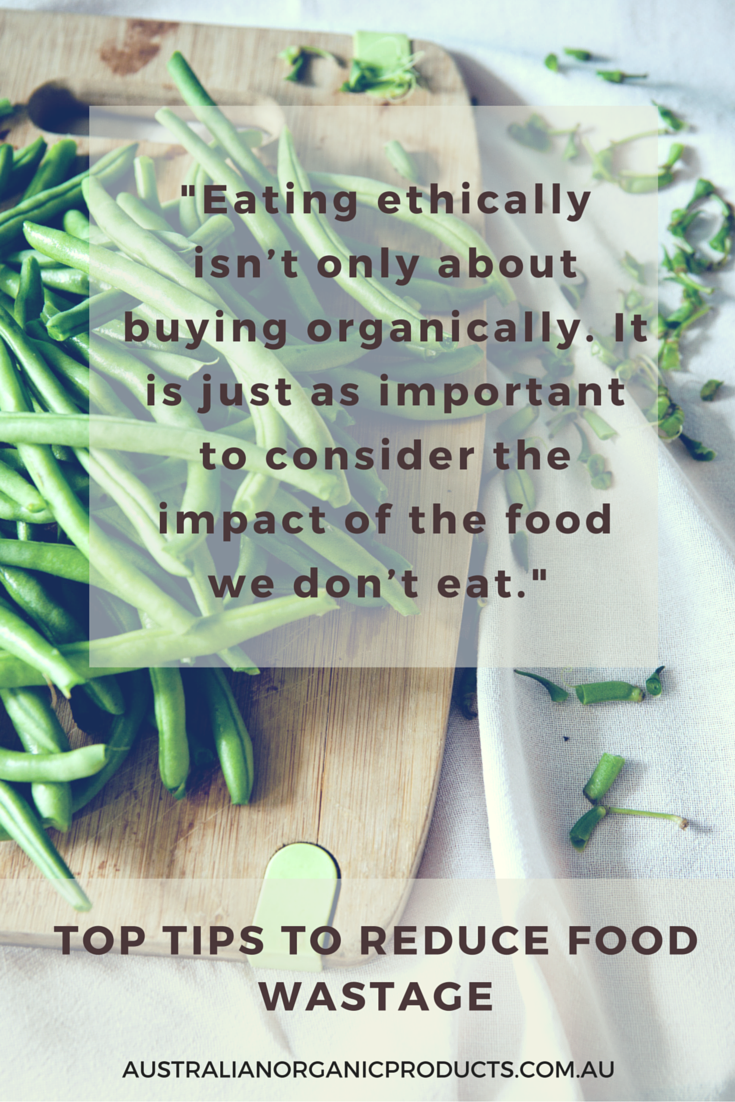
Top Tips To Reduce Food Wastage
People are starting to think more and more about where their food comes from, and whether it was produced fairly and sustainably. However, eating ethically isn’t only about buying organically. It is just as important to consider the impact of the food we don’t eat.
Globally, each year, 1.3 billion tonnes of food is wasted, while 870 million people still go without enough food. The good news is you can actually make a change. With some simple steps you can drastically reduce your food wastage, and save money in the process.

Here's some useful tips :
1. Store food properly
Make sure you store your food to allow it to retain its goodness as long as possible. Foodwise has a simple guide to getting storage smart, while this helpful guide to compatibility shows which foods can be stored together and which can actually make other fruits and vegetables ripen much faster than usual. For example, apples and watermelon both belong in the fridge, but not side by side – the levels of ethylene in apples can turn watermelon soft and mushy before their expected use-by date. But if you find you’ve bought too much or your meal plan needs some mid-week changes, fear not; many foods can be frozen, including leftovers. Find a comprehensive list of what you can and can’t freeze here.
2. Get to know the shelf life
You might have great intentions by buying that big box of avocados to save a few dollars, but if you can’t finish them before they go bad, in the long run you’re only wasting money as well as food. Buying only what you need and either finishing or freezing it is more budget-friendly than bulk-buying. Foodwise has a great guide to the shelf life of fresh and cooked foods here. Print it out and stick it to the fridge for a helpful reminder. 
3. Make plans
Meal planning can seem overwhelming but challenging yourself to reduce your waste can actually make it a more enjoyable task. Select meals that use entire vegetables, or meals that overlap ingredients so no odds and ends end up in the bin. There are myriad free planners available online to suit your planning style – check out a couple of great options here and here.
4. Compost
As much as you can reduce excess food, there will still be some scraps left at the end of the day – but they don’t have to be wasted. Start composting: it’s great for the environment and your garden will thrive. Check out this great guide to getting started. Cutting back on your wastage doesn’t have to be hard. With a few small changes to your habits, you can save money and cut back your contributions to global food wastage.
Want to know more? You can find more great tips to reducing waste here.

Leave a comment